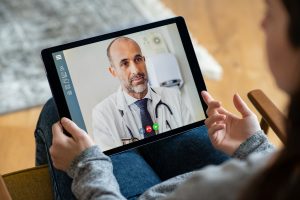
Mobile health technology consists of the use of mobile and wireless technologies to support health objectives. This can include voice and short messaging services, GPS, and Bluetooth technology. Wearable devices can also be worn to monitor and inform the user about specific health measures to improve health.
The new scientific statement put out by the American Heart Association highlights research from 26 studies over the past 11 years that examined mobile health technology used on adults ages 60 and older with existing heart disease.
It was found that studies that incorporated text messaging and website resource information improved people’s physical activity and other lifestyle behavioral changes over the course of three months. It also led to an increase in medication adherence. Successful mobile health interventions that included frequent, personalized, two-way messaging were found to be extremely successful.
Chair of the statement writing committee Erica N. Schorr said, “We know that controlling blood pressure, blood sugar and cholesterol are essential secondary prevention strategies and often require medication management. Reducing sedentary time, increasing physical activity, maintaining an optimal body weight and adopting a healthy diet are other significant lifestyle strategies to optimize the health of individuals with cardiovascular disease. Wearable devices and mobile devices and applications play an important role because they can assist individuals in monitoring and tracking health behaviors and heart disease risk factors, referred to as the AHA’s Life’s Simple 7, to reduce their risk of a cardiac event and achieve ideal cardiovascular health.”
Heart Disease In an Old Population
Two-thirds of all people with heart disease are 60 years and older. Within this population, those who have experienced a major cardiac event such as a heart attack or stroke are at 20 times the risk for future cardiac events compared to people without heart disease. This has led researchers to try and identify strategies that could help slow the progression of heart disease or reduce the risk of cardiovascular events.
More research is needed to confirm which mobile health interventions and technology would be most effective and how best to use them for older adults. However, these early findings show that there are benefits of integrating technology into the way patients manage their health. Mobile tech could become the way of the future for the older generation.